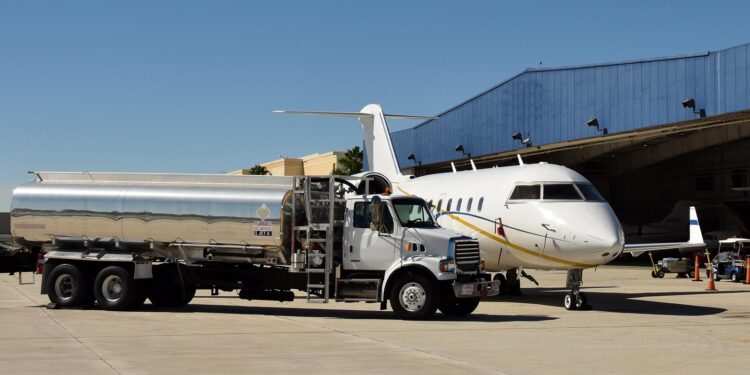Business Aircraft Ops to Chile: Fuel & Security

This is a post by author Mauricio Castillo. Mauricio is the FBO Supervisor at Aviasur, a Universal Aviations® Certified ground handler, which has an FBO in Santiago, Chile and provides ground support throughout the country. Mauricio is an expert on business aircraft operations in Chile and can be contacted at mauriciocastillo@univ-wea.com.
This business aviation blog post is part of a series on operating to Chile and continues from our last article: “Business Aircraft Ops to Chile: Airport Slots & Permits.”
While Chile offers competitive fuel options at most larger airports, and general aviation (GA) uplifts are normally on time, be aware of potential delays during peak airport hours. For example, at Santiago (SCEL) commercial peak periods are 0700-0900 and 1800-2100 local and fuel uplift delays of 30-45 minutes may be experienced.
The following is an overview of what you need to know:
1. Fuel credit in Chile
When uplifting fuel in Chile it’s always recommended to have a fuel card or credit card along with a fuel release. Your trip support provider or ground handler can also extend fuel credit with prior arrangement.
2. SCEL fuel uplifts
SCEL has three different fuel companies available, all with separate trucks for GA. Note that some fuel providers are normally only available 1000-2300 UTC during week days but with advance notice prior to the end of the business day, will provide after-hours fuel uplift for a 50 USD service charge. Be aware that you may experience fuel uplift delays during peak periods of scheduled commercial activity. If your arrival/departure is during a peak period, we recommend making special arrangements, via your ground handler, so that the fuel truck will be waiting for you.
3. Hydrant fuel
Hydrant fuel is available for GA at SCEL and other larger airports in Chile. However, be aware that hydrant fuel facilities are only on the commercial side so you’ll need to taxi, or be towed, from your parking spot to this location.
4. Fuel pricing, storage and testing
In Chile, posted fuel prices typically change every 15 days. No additional taxes are applied to fuel uplifts, regardless of type of operation. Fuel is either stored underground or in fuel farms, depending on the airport, and fuel testing is always available on the day of operation at the operator’s request.
5. Outlying airports
Fewer fuel options are available at smaller and secondary airports so it’s important to confirm fuel availability, fuel uplift hours and any other special arrangements that may need to be made.
6. Airport security
At all airports of entry (AOEs) in Chile, airport security is via government forces while at many smaller airports security is contracted to private companies. While larger airports have adequate fencing, patrols, security cameras and such, security infrastructure at smaller airports varies and private aircraft guards are often recommended. Private aircraft security is not permitted airside at SCEL, but other airports allow use of private unarmed guards.
7. Airside access
Airports in Chile do not permit to bring private vehicles airside to pick up/drop off passengers. Airside access controls at AOEs and larger airports are to international standards. If you’re parked on a private handler ramp, airside access back to your aircraft is easy and straight-forward. But when parked on a public ramp area, crew need to show ID to security for access and the handler must escort you airside.
8. Screening procedures
On arrival at larger airports, luggage is screened by X-ray, while at smaller airports customs usually does visual luggage checks. Upon landing it’s not required for GA crew or passengers to go through metal detectors, either at the FBO or in the main terminal. On departure at SCEL, luggage is security screened and crew/passengers screened via metal detectors. At smaller airports in Chile, but no luggage screening takes place and bags are taken directly out to the aircraft.
9. Off airport security
For off airport transport we recommend prepaid options (car with driver). Your ground handler can make these arrangements and there are plenty of choices available. It’s not recommended to use private taxis as most drivers do not speak English. As Chile is a low threat level country it’s not common for operators to arrange personal security protection for crew.
10. Disinfecting aircraft
For all international arrivals aircraft must be sprayed with an approved insecticide, preferably at top of descent. Upon landing if you’re not able to prove that disinfection has been done by providing the empty can and submitting a special form to agriculture inspectors, your ground handler will arrange to have the aircraft spray provided on the ground at which point this step needs to be completed.
11. Additional reading: Business Aircraft Ops to Chile – Series Index
Note: Links will be updated as articles are published.
- Part 1 – airport operations
- Part 2 – ground handling
- Part 3 – customs, immigration and quarantine
- Part 4 – airport slots and permits
- Part 5 – aviation fuel and security
- Part 6 – flight planning and weather
- Part 7 – additional operating considerations
Conclusion
Aviation fuel is not an issue in Chile, but it’s recommended that operators have a fuel release and a fuel carnet or credit card with them. Note that all international arrivals require that the aircraft be sprayed upon descent, or this process will need to be done on arrival. Chile has a low security threat, but it’s always recommended that transportation be arranged via your ground handler to avoid language barriers.
Later, we’ll discuss flight planning and weather for Chile and their impact on your trip.
Questions?
If you have any questions about this article or would like assistance planning your next trip to Chile, contact me at mauriciocastillo@univ-wea.com.



